Publications
Articles, publications, books, tools and multimedia features from the U.S. Institute of Peace provide the latest news, analysis, research findings, practitioner guides and reports, all related to the conflict zones and issues that are at the center of the Institute’s work to prevent and reduce violent conflict.
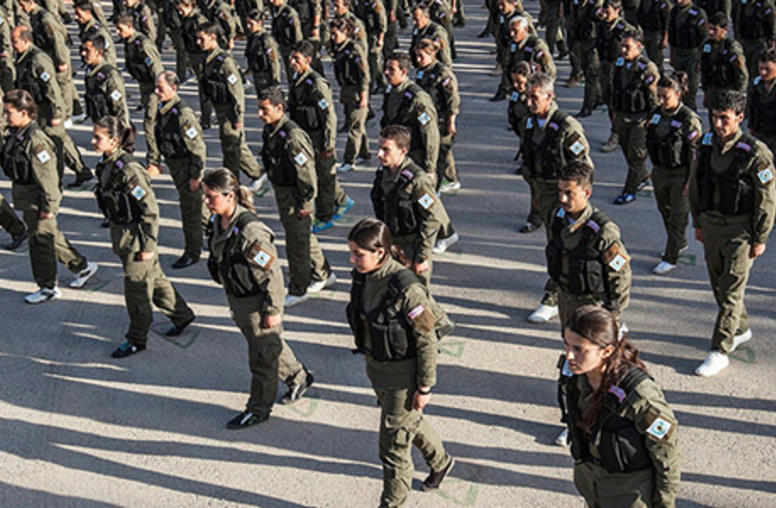
Middle East Security Suffers for Absence of Women
In the violent conflict tearing across the Middle East and North Africa, fully half of the pieces needed to complete the security puzzle may be missing almost entirely: women. As extremist groups and military forces parry with the weapons of war and politics, the pivotal role that women could play in restoring peace and security has largely been cast aside, as old-school thinking perpetuates the idea that gender equality is a problem for another day, according to experts and a new study just published by USIP.
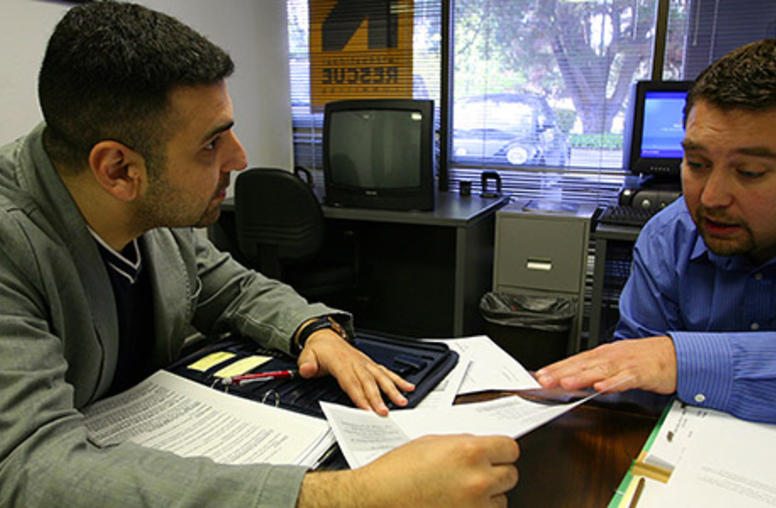
Panel Urges New View of Middle East Refugees
The refugee crisis that has spread to Europe and the breakdown of the Middle East’s century-old political order demand new thinking about the economic role of displaced people and a reassessment of donor strategies to rebuild societies in conflict, a working group convened by the U.S. Institute of Peace concluded. The panel’s report, developed under USIP’s Manal Omar and Elie Abouaoun as part of Atlantic Council’s Middle East Strategy Task Force, calls for refugees to be viewed as potential e...
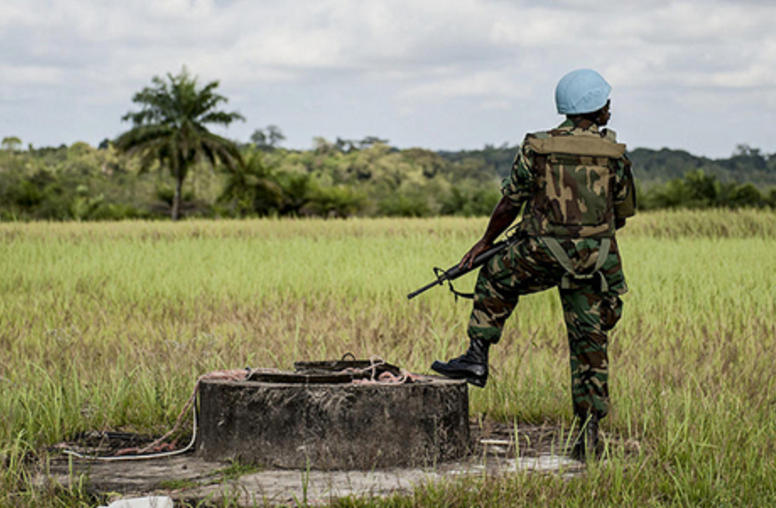
Africa Peacekeeping: Lessons from a Ghanaian Commander
For peacekeeping forces in Africa, the days of simply patrolling a ceasefire line or keeping local armies apart are over. Their assignments today increasingly include protecting civilians, confronting violent extremism and even engaging in what amounts to counter insurgency. These new burdens demand better preparation of troops headed for missions and clearer thinking by those who send them, Ghanaian Army Colonel Emanuel Kotia, a leading trainer of African peacekeepers, said at a U.S. Institute of Peace forum.
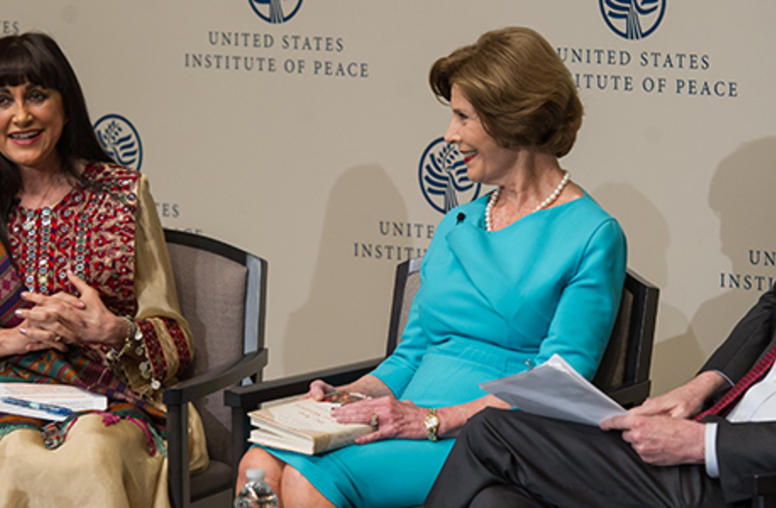
Laura Bush Urges Sustained Support for Afghan Women
Former first lady Laura Bush said the international community must continue to support the reconstruction of Afghanistan and progress for the country’s women through aid, investment and an ongoing presence of American troops. Speaking at the U.S. Institute of Peace on March 15, Bush said she remains hopeful for the country’s future, in part because of the spirit of Afghan women and the strides they have made in education, business and government.
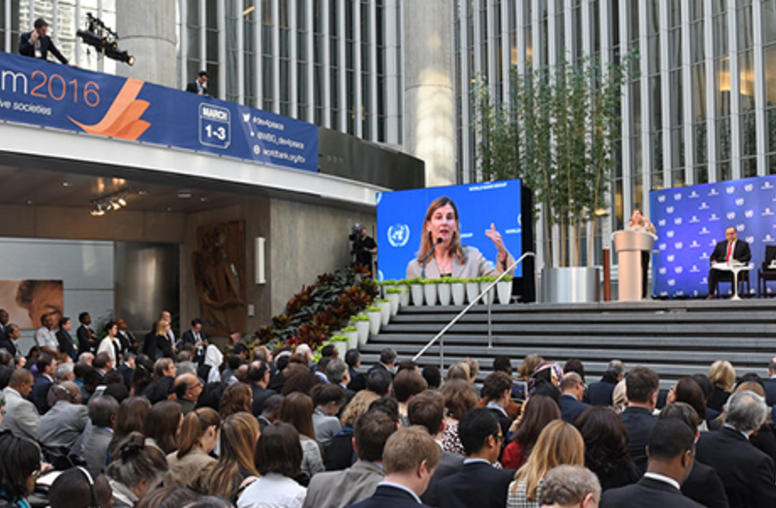
Fragile States Require Unified Response, Lindborg Says
U.S. Institute of Peace President Nancy Lindborg called for united action by humanitarian and economic development organizations, telling the opening session of the World Bank’s 2016 “Fragility Forum” that peace, development and security are inextricably linked in today’s world crises.
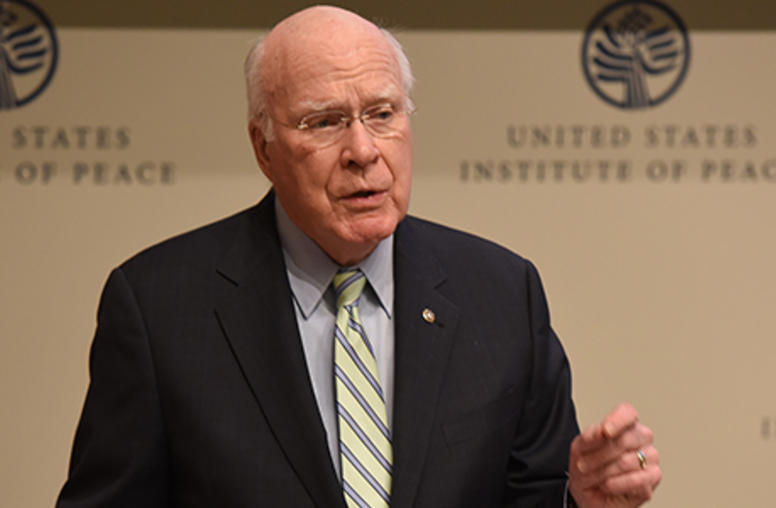
Aid Is Key to Reform Local Forces on Rights, Leahy Says
The goal of a law that for two decades has barred U.S. aid to security forces that violate human rights is to rehabilitate culpable units, not just punish them, the statute’s author, Senator Patrick Leahy, told an audience at USIP this week. The senator and administration officials who also spoke highlighted a new interagency policy that promotes reform by restoring assistance to partner governments once they have held perpetrators accountable and moved to guard against future abuse.
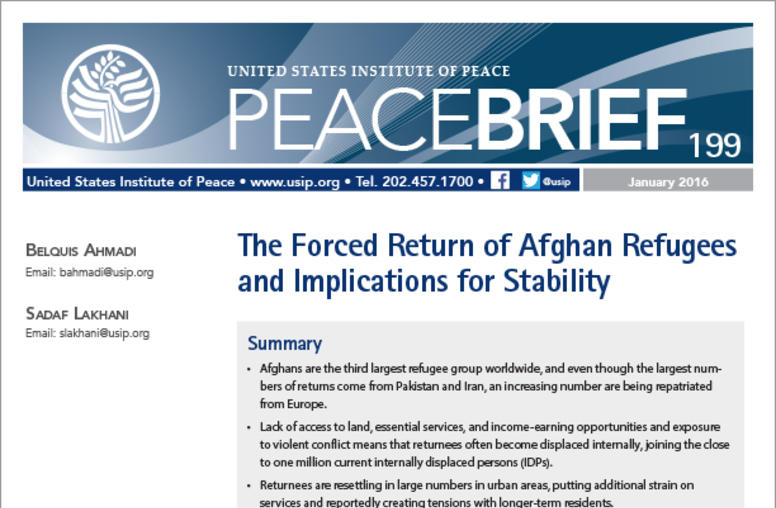
The Forced Return of Afghan Refugees and Implications for Stability
Afghan refugees have been returning home from Pakistan and Iran in growing numbers, and many of these returns have been involuntary. The situation is adding stress to an already challenging environment, characterized by insecurity, lack of access to employment and services, land and housing tensions, and rapid urbanization. This brief presents important considerations for developing a clear, well-coordinated strategy that addresses the impacts of large-scale returns and the specific needs of ...
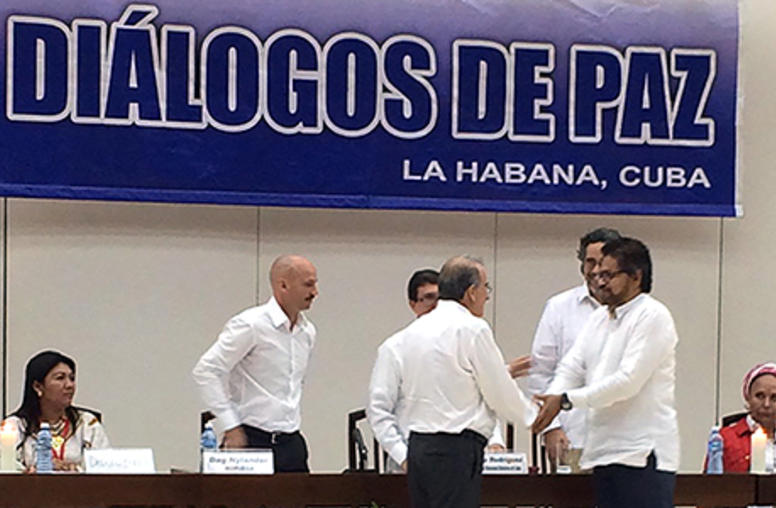
Q&A: Colombia, Guerrillas Reach Accord on Rights for Victims of War
Making a peace deal that accommodates the needs of the millions of civilians hurt by Colombia’s 50-year-old conflict has challenged negotiators since talks between the government and the nation’s largest guerrilla group began three years ago. This week, negotiators announced an agreement on victims, completing the fourth item on a six-point agenda that’s aimed at ending hostilities. USIP’s Virginia Bouvier, who was in Havana for the declaration on victims, said the latest accord is another hi...
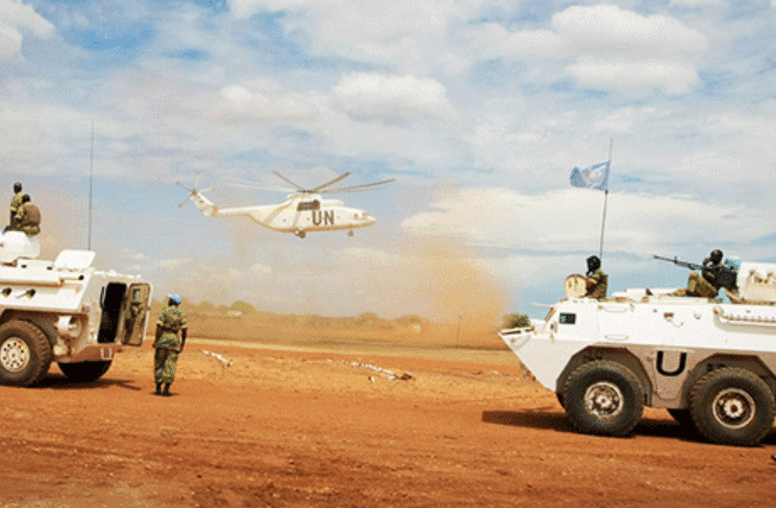
Saving U.N. Peacekeeping: High Stakes for the U.S.
As America and its allies confront a widened war in Syria, the refugee exodus to Europe, and terrorist violence in Paris, Beirut and Mali, we must treat the roots, not just symptoms, of these catastrophes. That will require an urgent repair of our world’s main tool for addressing violent conflict—the increasingly overwhelmed United Nations peacekeeping system.
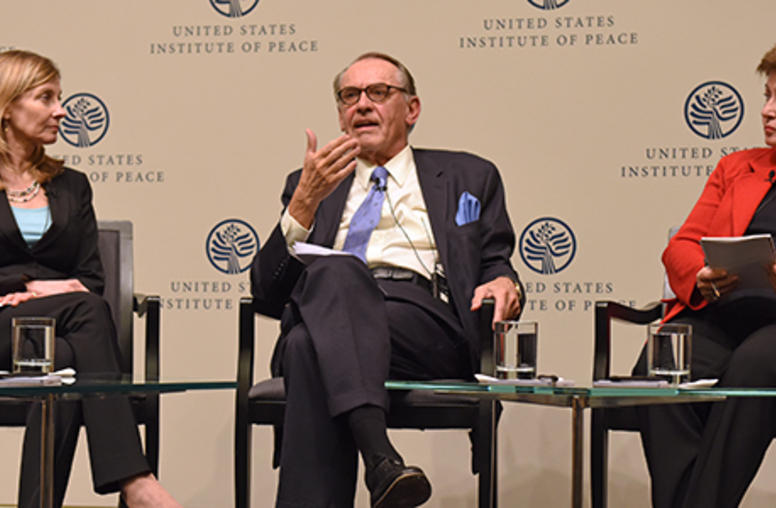
U.N. Eyes Early Human Rights Intervention to Promote Development
United Nations discussions that are underway on how it can intervene to stop human rights violations within national boundaries might help prevent such tensions from exploding into the kinds of civil wars and floods of refugees that the world is experiencing today, said Jan Eliasson, the global body’s deputy secretary general, at an event organized by the U.S. Institute of Peace.